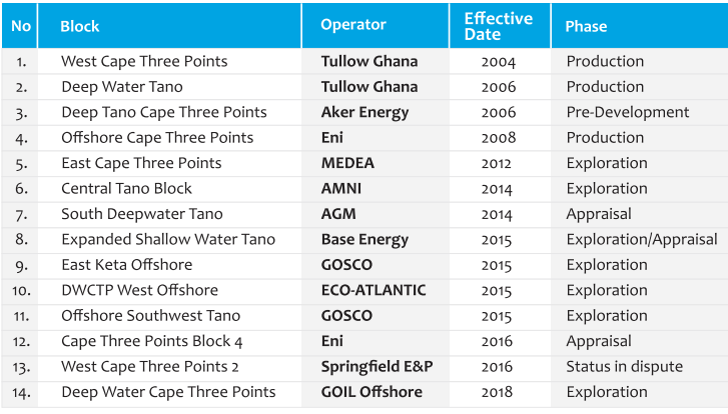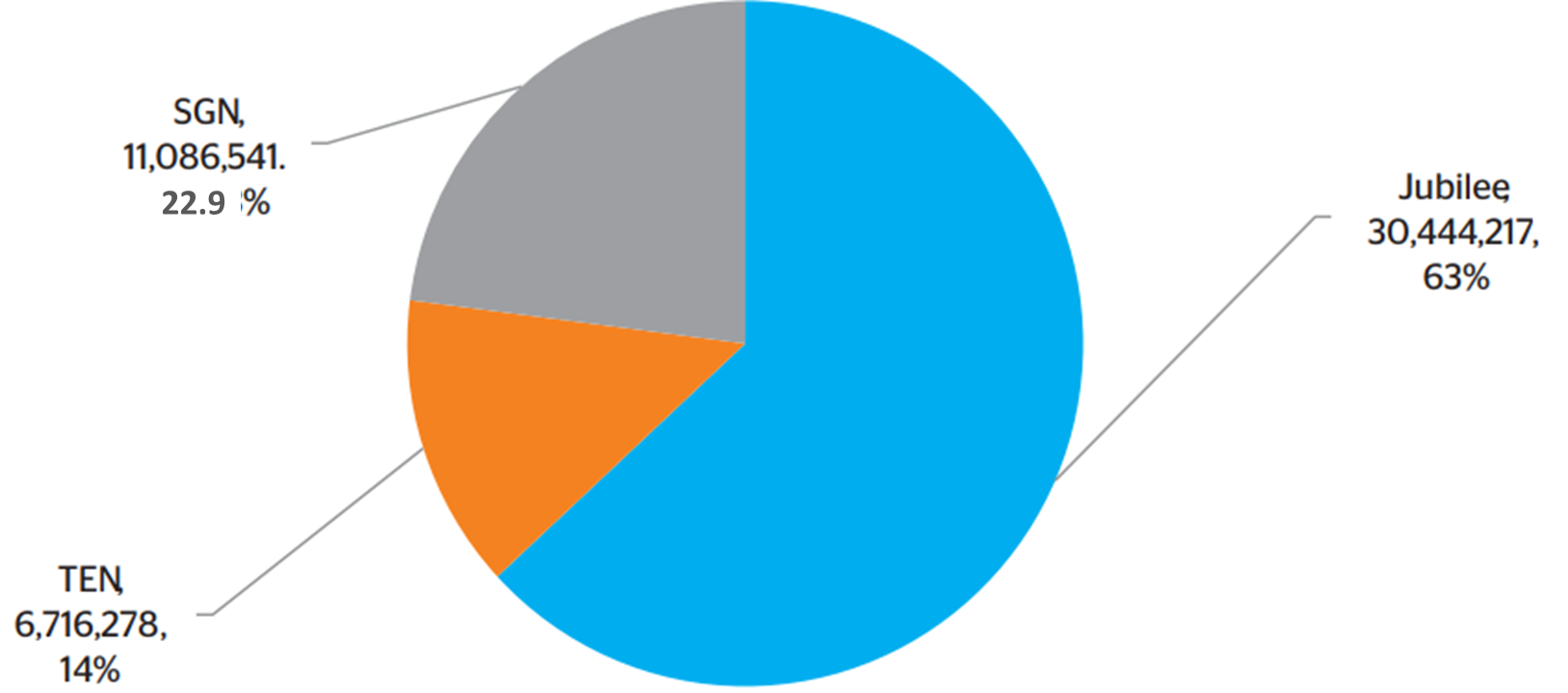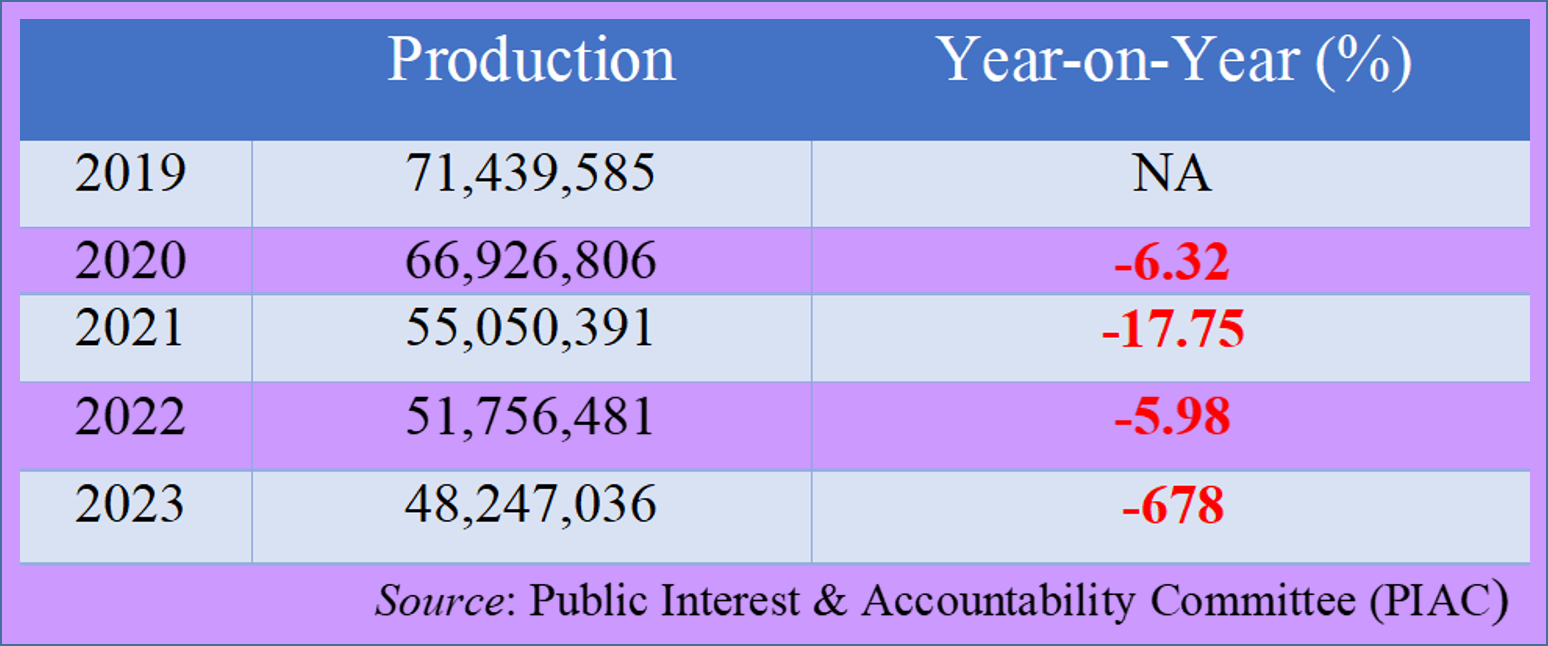Attracting investments in the upstream oil and gas
Anastasia Frimpong, Accra, Ghana
March 21, 2024
G hana Ghana aspires to become the petroleum hub of West Africa. And the government believes the country has convincing arguments to achieve this goal. Since 2006, the country has attracted investment from global oil companies. Domestic upstream oil companies have also emerged as the country continues to offer incentives to attract more companies and investors.
Potential investors will meet and work with experienced institutions. The ministry of energy and petroleum (MoEP) oversees the implementation of petroleum policies and laws. Another State institution, the National Petroleum Authority (NPA) regulates petroleum industry. A third agency, the Petroleum Commission, is in charge of the upstream activities. Finally, the Ghana National Petroleum Corporation (GNPC) in a state-owned public oil company.
Since 2019, production has steady fallen according to industry analysts1. The decline has prompted warning from stakeholders such as the Public Interest & Accountability Committee (PIAC) and the Extractive Industry Transparency Initiative (EITI). In its 2023 report the PIAC, said if this trend persists, the oil industry will disappear within two decades2. Despite the alarm bells, the ministry of energy says Ghana remains upbeat and welcomes investors in exploration and oil infrastructure.
Active upstream petroleum agreements
In 2023, the Ghana Upstream Petroleum Chamber reported 14 active exploration agreements. The Chamber also notes that, since 2018, Ghana has concluded no petroleum agreements.
Active Petroleum Agreements in Ghana’s upstream segment

Source: National Petroleum Commission, 2022
Production activities
Three offshore fields generate the total output of Ghana’s oil and gas. They are the Jubilee field, the TEN (Tweneboa, Enyenra, Ntomme - TEN) and the SGN (Sankofa Gye Nyamey) fields.
The government estimates that the Jubilee field accounts for 52.2 percent of proven reserves, while the TEN and SGN account for 27.7 percent and 20.1 percent. Estimates for gas reserves in the three fields are 1.236 billion cubic feet. SGN holds the largest reserves with 68.4 percent followed by the Jubilee field (17.8 percent of gas reserves) and TEN field (13.8 percent).
Crude oil production comes from three fields, namely Jubilee, TEN, and the Sankofa GyeNyame (SGN). Ghana discovered the Jubilee Field in 1987 and production began in December 2010. In 2023, the Jubilee Field continued to dominate oil production despite a decline of 50 percent in 15 years. Production at the TEN and the Sankofa GyeNyame (SGN) has also declined by more than 60 percent over the same period.
Breakdown of Crude Oil Output by fields in 2023

Source: PIAC Report 2023
The 2023 production figures present the fourth consecutive year of decline after peak in 2019, when output reached a record annual volume of 71,439,585 barrels. Output then declined to 66,926,806 barrels in 2020, representing 6.32 percent. It declined further to 55,050,391, 51,756,481, and 48,247,036.61 barrels in 2021, 2022 and 2023 respectively, representing 17.75 percent, 5.98 percent and 6.78 percent according to the PIAC 2023 report.
Crude Oil production decline (2019-2023)

New oil discoveries
On February 14th, 2019, Aker Energy and Ghana minister of finance announced a new offshore discovery. The announcement came during a meeting with investors in Oslo, Norway3.
On December 11th, 2019, Springfield, a homegrown oil company, also reported a discovery. The company said that the well contains as much as 1.5 billion barrels and 0.7tcf (trillion cubic feet) of gas. Springfield holds 84 percent of the WCTP Block 24. A third discovery came from the Petroleum Commission in 2023, in which it reported a discovery by the Italian group, ENI. ENI reportedly made the discovery in the Aprokuma-1X well within the Cape Three Points (CTP) Block 45.
Authorities have expressed optimism about these discoveries. Minister Ofori Atta projected an ‟increase from 196,089 barrels per day in 2019 to 420,020 barrels per day in 2023”. This, the minister said, is ‟a key destination for petro-chemical industry players”. Deputy Minister of Energy, Mohammed Amin Adams, was more bullish about the prospects. He forecasted that Ghana’s production of crude oil will reach half a million barrels by 20256. While industry analysts wait for these new reserves to be audited and confirmed, Ghana earned $2.3 billion dollars from crude oil export in 2020.
We welcome investors
Oil and gas are capital intensive and require large investments before and after discoveries. Investors sign financing agreements only after several project phases. Various appraisals must determine the commercial viability of the extraction. Companies decide on the recovery method after field evaluation stages. Engineering, design and also logistics follow as part of the development stage. Final decision on production also depends on economic factors, but takes many years to materialize.
The Petroleum Act, 2016 (Act 919) can offer licenses by direct negotiations or by a tender process7. In 2018, during the first licensing round, sixteen firms made it to the second round. ExxonMobil, British Petroleum, China National Offshore Oil Corporation and Qatar Petroleum were on the starting block. But only ENI and Aker materialized their offers. Ghana has learned from this experience. Authorities promised to improve the quality of the data, to help bidders in their decision to invest8.
Related Articles
BIBLIOGRAPHY
1❩ Charlie Mitchell (2024): Falling production, waning investment leave Ghana's oil sector at a crossroads - https://www.spglobal.com/commodityinsights/en/market-insights/latest-news/oil/031524-falling-production-waning-investment-leave-ghanas-oil-sector-at-a-crossroads
2❩ PIAC (2024): Ghana’s oil production dropped from 71.44 million to 48.25 million barrels in 2023. https://www.piacghana.org/ghanas-crude-oil-production-dropped-from-71-44m-to-48-25m-barrels-in-2023-piac/
3❩ Oslo Press release - https://mofep.gov.gh/sites/default/files/news/Press-Release-Ghana-oil-production.pdf
4❩ West Cape Three Points
5❩ Ghana Petroleum Commission
6❩ Oslo Press release ibid.
7❩ Ghana Petroleum Commission (March 2019): Gh Upstream News, Quarterly Newsletter
8❩ https://www.petrocom.gov.gh/licensing-round-ghanas-energy-ministry-explains-why-most-oil-companies-pulled-out/
